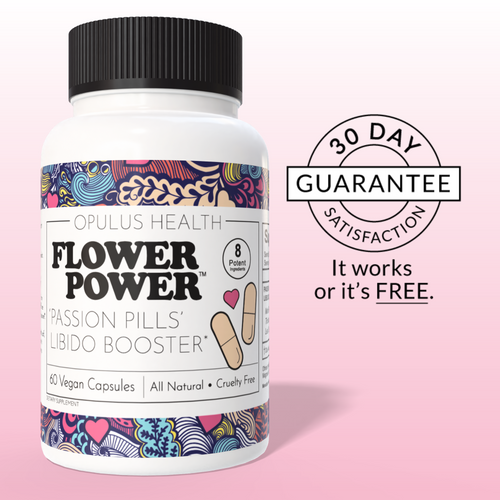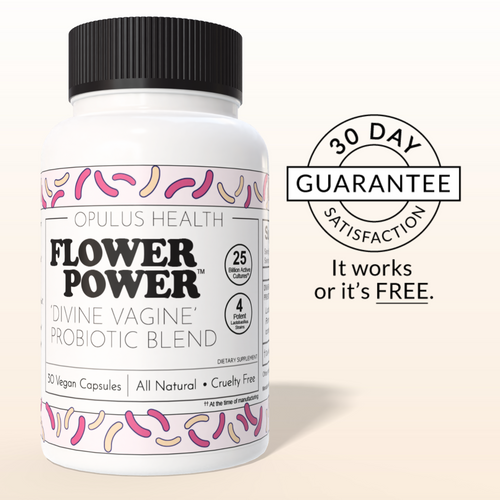We all know that collagen is great for glowing skin, but did you know it’s also essential for your vaginal health? Yes, collagen plays a major role in keeping your intimate areas healthy, supple, and comfortable.
In this article, we’ll explore how collagen affects your vaginal health and why it's so important for maintaining comfort and pleasure during intercourse.
What is Collagen?
Collagen is the body's primary structural protein, acting like a scaffold that holds everything together. It’s found in your skin, bones, and even your vaginal walls. So, it's no surprise that collagen plays a vital role in maintaining vaginal health.
Type I Collagen for Optimal Vaginal Health
There are two main types of collagen in the body, but when it comes to vaginal health, Type I collagen is what you need. It’s responsible for giving your skin its strength and elasticity, and in the vaginal area, it helps keep things tight, flexible, and supple.
The more Type I collagen you have, the more comfortable and pleasurable penetrative sex can be. Collagen also helps with vaginal moisture and healing, making it critical for overall intimate wellness.
How Collagen Supports Vaginal Health
1. Elasticity and Flexibility
Just like your skin, your vaginal walls need collagen to stay elastic. Whether it's during childbirth or intercourse, collagen ensures that your vagina can stretch and return to its natural state without discomfort.
2. Moisture Retention
Collagen plays a key role in keeping the vagina moisturized. Collagen-rich vaginal walls retain moisture better, helping to prevent dryness and discomfort.
3. Faster Healing After Childbirth
Women who have more collagen in their vaginal tissue often heal quicker after childbirth. Collagen promotes faster tissue repair, which can make recovery smoother.
Why Does the Vagina Lose Collagen?
Like the rest of your body, the vagina loses collagen over time. Several factors contribute to this loss, including:
- Age
- Childbirth
- Hormonal changes
- Certain medications
This collagen loss can lead to symptoms such as vaginal dryness, reduced elasticity, and even pain during intercourse.
Boosting Your Collagen: Natural Sources vs. Supplements
There are two main ways to increase your body’s collagen levels: through natural sources or supplements. Let’s take a look at both.
Natural Sources of Collagen
You can boost your collagen intake naturally by incorporating collagen-rich foods into your diet. Here are some great sources:
- Bone broth
- Fish
- Chicken
- Egg whites
- Citrus fruits
- Berries
Pros of Natural Collagen:
- Natural collagen is easily absorbed by the body.
- It provides other nutrients that your body needs, not just collagen.
Cons of Natural Collagen:
- Natural sources might not provide enough collagen for those with a significant deficiency.
Collagen Supplements
Supplements can give you a quick and convenient collagen boost. However, it's important to choose wisely and be aware of potential side effects.
Pros of Collagen Supplements:
- They’re convenient, especially for those who don’t have time to source collagen-rich foods.
- Supplements can be a lifesaver for people with collagen deficiencies.
Cons of Collagen Supplements:
- Some supplements may pass through your body unabsorbed.
- The supplement industry is not well-regulated, so research the brand before buying.
- Potential side effects include digestive issues or allergic reactions, especially in fish-based supplements.
Other Ways to Boost Collagen in the Vagina
- Topical Treatments: Some vaginal creams contain collagen boosters, but consult your doctor before trying them.
- Laser Treatments: Medical procedures like laser therapy can promote collagen growth and rejuvenate vaginal tissue.
Beyond Vaginal Health: Other Benefits of Collagen
Collagen doesn’t just benefit your vaginal health. Here are a few other ways it supports your overall well-being:
- Skin Health: It keeps your skin hydrated, reduces wrinkles, and promotes elasticity.
- Joint and Bone Health: Collagen strengthens bones and joints, helping to prevent arthritis and osteoporosis.
- Heart Health: Collagen maintains the structure of your arteries, reducing the risk of heart issues.
Conclusion
Collagen plays a crucial role in your vaginal and overall health. Whether you choose to increase collagen through diet or supplements, maintaining healthy levels is essential for vaginal elasticity, moisture, and comfort. It’s an investment in your well-being and intimate happiness!
Remember, collagen isn’t just about looking great—it’s about feeling great from the inside out!












